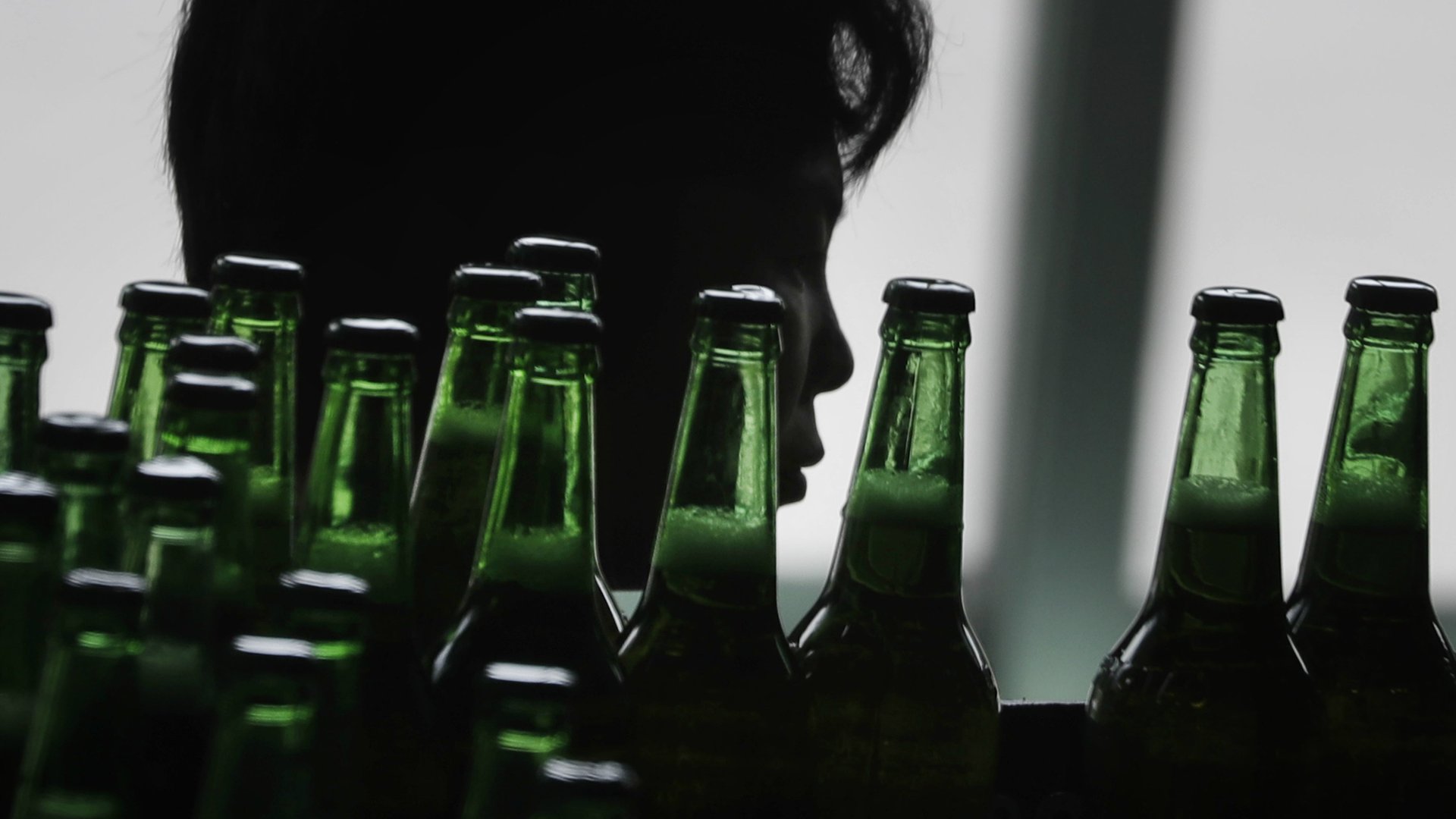The hidden culprit of youth obesity: lots and lots of booze
A team of Canadian researchers has published a new report suggesting that teen drinking has a much bigger impact on youth obesity rates than once thought.


A team of Canadian researchers has published a new report suggesting that teen drinking has a much bigger impact on youth obesity rates than once thought.
The new data (pdf) comes from the University of Waterloo in Ontario, Canada, where a team of researchers had high-school students from 89 schools fill out confidential surveys as they progressed through their senior year. In these surveys, the students recorded the amount and kinds of alcohol they drank each week, among other factors.
The researchers found that nearly 39% of students reported binge drinking—defined as having five drinks or more in one sitting—at least once a month, and 11% reported binge drinking at least once a week. And all that drinking translates into calories.
By comparing student drinking habits with the nutritional information of popular types of alcoholic beverages—such as vodka coolers, beer, and wine—the researchers were able to make estimates on just how much weight a student might gain from the caloric intake of a year of binge drinking. For example, those who binge drank vodka coolers at least once a week were consuming an extra 57,000 calories a year. This would have added about 7.5 kg (16.5 lbs) of fat to their frames.
Broken down by sex, the study found males were twice as likely to binge drink once a week than females and three times as likely to binge drink two or more times per week.
The study is one of the first to examine youth obesity through the lens of alcohol consumption, shedding light on a previously overlooked reason why one in five American children and one in eight Canadian children may be obese. Most similar studies in this sphere have focused on the impact that sugary beverage consumption—such as sodas and energy drinks—has on weight gain.
“The high prevalence of frequent alcohol consumption and binge drinking by youth in this study, and the substantial number of calories contained in alcoholic beverages, suggest alcohol may be a key component of the obesity discussion that should not be overlooked,” the researchers wrote.